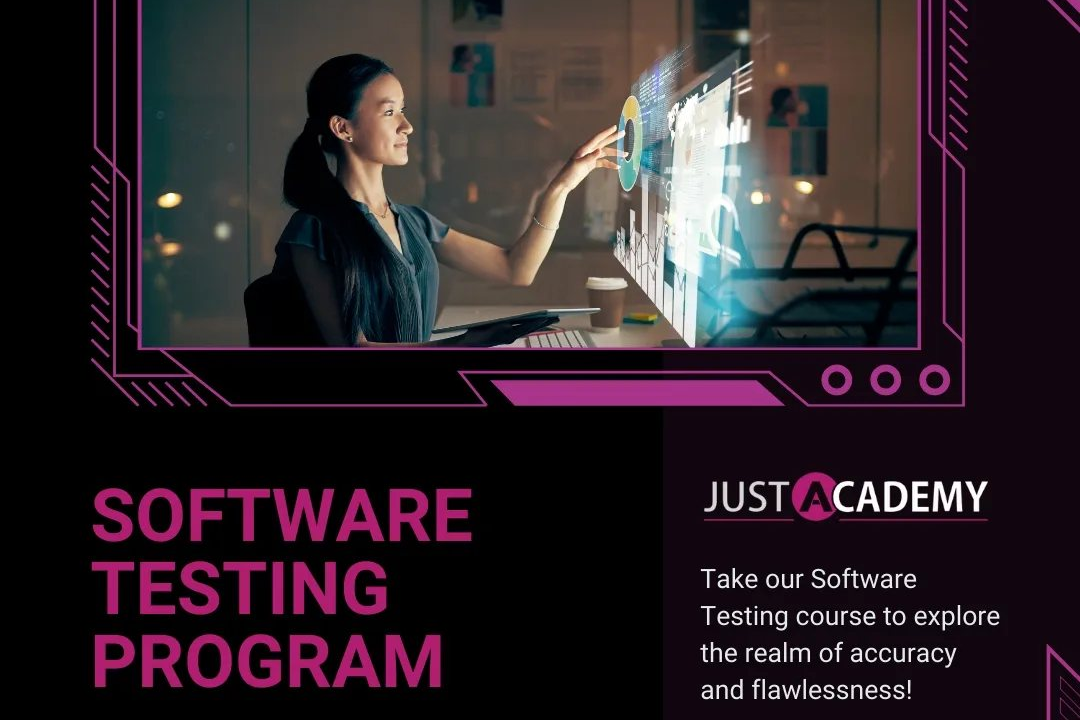best software testing course for beginner
Ultimate Beginner's Guide to Software Testing Courses
best software testing course for beginner
The best software testing course for beginners typically covers the fundamental principles of software testing, including various testing types (such as unit, integration, system, and user acceptance testing), methodologies (like Agile and Waterfall), and testing tools. Ideal courses often include hands-on practical exercises, case studies, and real-world projects to help learners gain practical skills in writing test cases, executing tests, and reporting defects. Comprehensive courses also address automation testing using popular tools like Selenium or JUnit, along with an introduction to test management frameworks. Look for courses with strong student reviews, mentorship opportunities, and a focus on current industry practices to ensure a solid foundation in software testing.
To Download Our Brochure: https://www.justacademy.co/download-brochure-for-free
Message us for more information: +91 9987184296
1 - Introduction to Software Testing: The course starts with foundational concepts, explaining what software testing is and why it is essential in the software development lifecycle.
2) Types of Testing: Students learn about various testing types, such as manual testing, automated testing, functional testing, performance testing, regression testing, and user acceptance testing.
3) Testing Methodologies: The course covers different testing methodologies like Agile, Waterfall, and DevOps to provide context on how testing fits into various development frameworks.
4) Test Planning and Design: Learners will understand the process of test planning, creating test cases, and designing effective test scenarios based on requirements.
5) Test Execution: Hands on sessions will include executing test cases, documenting results, and managing defects using bug tracking tools like JIRA or Bugzilla.
6) Introduction to Automation Testing: Basics of automation testing using popular tools like Selenium or JUnit. Students will understand when and how to automate tests.
7) Test Management Tools: Training on tools that help manage test cases and test execution, such as TestRail or QTest, helping students organize their testing efforts effectively.
8) Real world Projects: Involvement in real world testing projects allows students to apply theoretical knowledge in practical scenarios, enhancing their problem solving skills.
9) Quality Assurance Principles: Understanding the principles of quality assurance, including ensuring product quality throughout the software development lifecycle.
10) Reporting and Metrics: Learning how to produce effective testing reports and utilize metrics to evaluate testing effectiveness, communicating results to stakeholders.
11) Version Control Systems: Introduction to version control systems (like Git) and their relevance in maintaining testing artifacts, promoting collaboration among team members.
12) Soft Skills Development: Emphasis on developing soft skills such as communication, critical thinking, and teamwork, essential for a tester’s role in the workplace.
13) Mock Interviews and Resume Building: Preparation for the job market through mock interviews and resume workshops, helping students present their skills effectively to potential employers.
14) Career Guidance and Job Placement Assistance: Providing resources and support for job searches, including networking opportunities, job boards, and career counseling.
15) Certifications Preparation: Guidance for industry recognized certifications like ISTQB (International Software Testing Qualifications Board), offering students an edge in the job market.
16) Community and Networking Opportunities: Encouragement to join testing communities, online forums, and local meetups for continuous learning and networking.
17) Guest Lectures and Industry Insights: Sessions with industry professionals sharing insights, trends, and experiences, enriching the learning experience and keeping it relevant.
18) Continuous Learning Resources: Access to additional learning materials, including books, articles, and online courses, encouraging lifelong learning in the software testing field.
This structured approach ensures that beginners not only grasp the theoretical aspects of software testing but also gain practical skills essential for launching a successful career in the industry.
Browse our course links : https://www.justacademy.co/all-courses
To Join our FREE DEMO Session: Click Here
Contact Us for more info:
tableau software training
react stack
java training institutes in ameerpet hyderabad
Full Form Of ASP In Computer
Abstraction Interview Questions in Java 2024











